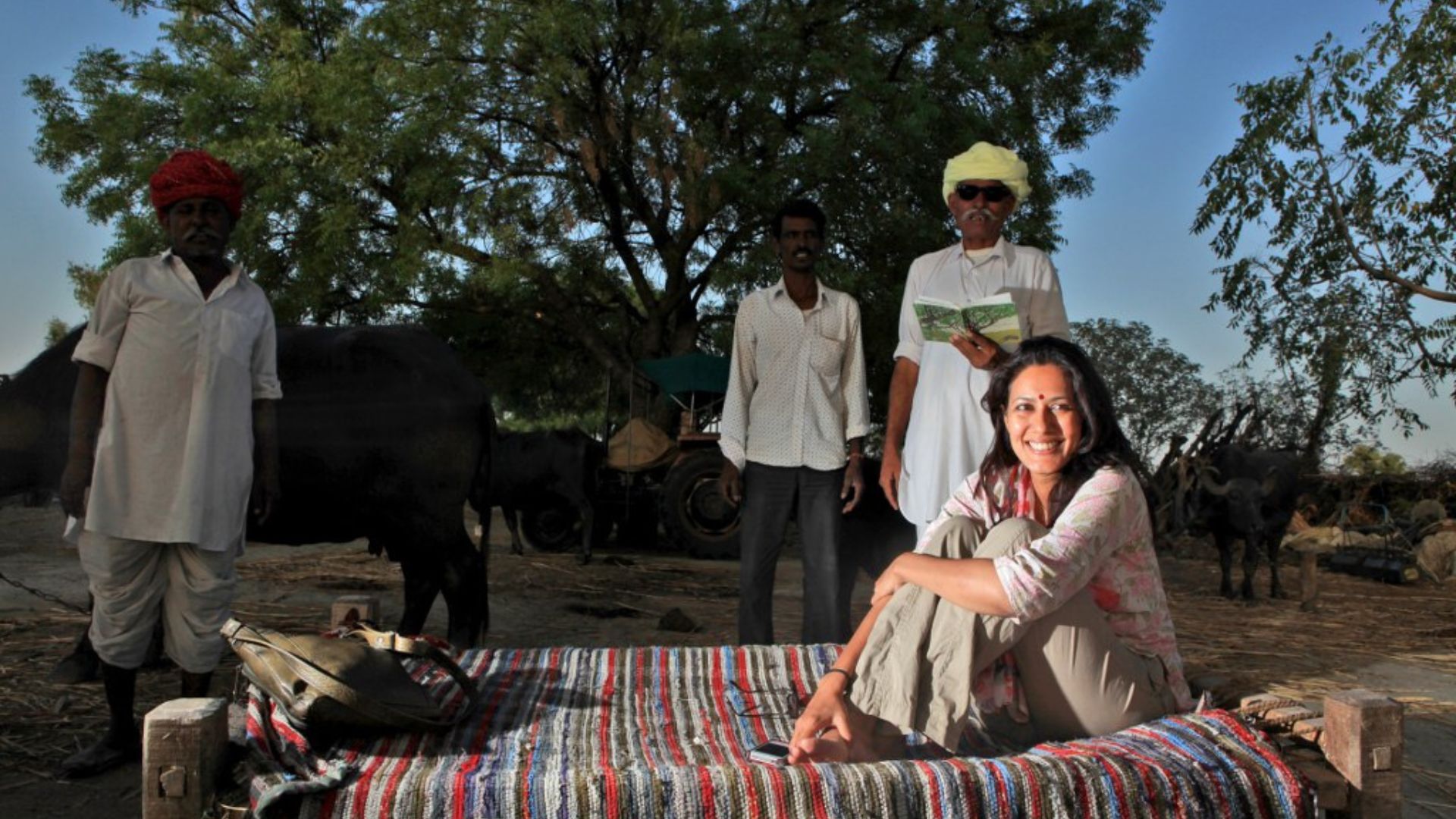Chhavi Rajawat, India’s first woman M.B.A. sarpanch and IVLP alumna, shares the experience of transforming her ancestral village in Rajasthan.
June 2024

IVLP alumna Chhavi Rajawat in her ancestral village of Soda. (Photograph by Aditya Kapoor)
When Chhavi Rajawat was elected as the sarpanch of Soda in Rajasthan in 2010, few knew about the woman who quit her high-paying tech job to join India’s rural self-governance system. She is said to be India’s first village head with an M.B.A. degree. In 2012, Rajawat participated in the International Visitor Leadership Program (IVLP), the U.S. State Department’s premier professional exchange program. Titled “Young Leaders: U.S. Political Processes,” the exchange visit provided practical insights into good governance, coalition building, public-private partnerships and the public administration duties of elected and appointed officials.
In her ancestral village of Soda, Rajawat fought through gender biases to bring better education, water, sanitation and infrastructure. “We did not have the required resources,” she says. “There was no educated, tech-savvy and digitally literate team.” Without any funds, internet access, or technical expertise to execute development projects in the village, Rajawat had to find creative solutions to everyday problems. “If I found support lacking from the government, I would reach out to the private sector,” she says. “I always had a Plan B that helped me succeed, and that began by garnering support from within the village and outside.”
In the years since, Rajawat—elected twice as the village sarpanch—has brought commendable changes to Soda. She has revived the village reservoirs to provide safe drinking water; helped build better infrastructure like primary health care centers, government schools and banks; transformed the council office and helped village households get on the electric grid. Rajawat also led efforts to provide career counseling to schoolchildren and youth, construct a waste disposal center, open a bank and create awareness about savings accounts.
Effective partnerships
Her IVLP participation, during which she traveled to Florida, Utah, New York and Washington, D.C., provided unique opportunities to understand how city councils in the United States operated. This experience inspired her to adopt a different approach to governance as the head of the village council. During a meeting with officials from the Escambia Emergency Operations Center, Rajawat was impressed with the successful communications plan that was enacted to tackle the wind and flood damage that overtook the area in 2004 during Hurricane Ivan. She also had the opportunity to observe the Florida primary elections, gaining a first-hand look at the polling process, including the work of government and volunteer monitors and campaign staff.
Rajawat and the IVLP group also visited a high school in Pensacola, Florida, to learn about civic education in schools and meet with students participating in student government and local politics.
“I deeply appreciate the friendships formed and the exposure received,” she says. “I would have loved to collaborate to have a city council work with a village council as that might pave the path for interesting and meaningful partnerships.”
Empowering with education
Rajawat, who decided to not contest village elections for a third term, now uses her experience and influence to leverage education as a tool to bridge the gaps between urban and rural India. Her latest project is reviving a women’s college in Soda. Eminent Girls College runs three programs—Bachelor of Education (B.Ed.), Diploma in Elementary Education (D.El.Ed.) and a Bachelor of Arts program, with over 500 registered students. “To improve the quality of education, we require better faculty to help empower our young students,” says Rajawat. “I wish to use virtual education platforms and have faculty members from across the country come forth to teach our students who otherwise do not have access to good teachers.” Rajawat also wants to set up a digital literacy center, a training center on agriculture, a vocational training center and a sports facility for the children and youth of the area.
Rajawat has come a long way in helping Soda create a better future for its coming generations. She says volunteers from village schools and colleges help with local projects, creating a generation of empowered young individuals ready to give back to their community— just like Rajawat did over a decade ago.
Paromita Pain is an assistant professor of Global Media Studies at the University of Nevada, Reno.
Click here to sign up for the free SPAN newsletter: https://bit.ly/SubscribeSPAN
COMMENTS